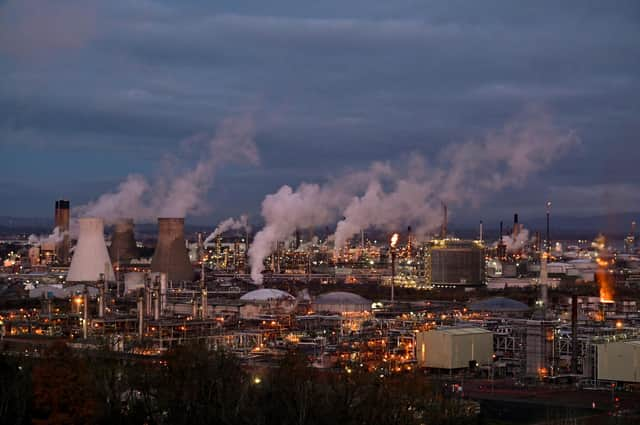With SNP-Green coalition in charge, Scotland's net-zero ambitions may not be in safe hands – Scotsman comment


When Rishi Sunak announced in September that he was delaying several key climate targets, he declared: “We’ll never force anyone to rip out their existing boiler and replace it with a heat pump.” The cost was simply too expensive, he explained, and people could not be reasonably expected to come up with the money.
His speech on the UK Government’s new approach to creating a net-zero economy by 2050 was, as expected, widely condemned by environmentalists, but also by some of his own MPs. The government’s own advisers, the Climate Change Committee, warned the changes had increased the risk the UK would not meet the 2050 target.
Advertisement
Hide AdAdvertisement
Hide AdFaced with the difficult task of decarbonising transport and home heating, Sunak decided the previous ambitions had not been matched by a plan to achieve them. Instead of coming up with one, he decided to backtrack. And he did so with an eye to a constituency that, despite the evidence, does not think climate change is a serious issue.
In an interview we publish today, Scottish Green co-leader Patrick Harvie, minister for zero-carbon buildings, said the UK Government had “quite deliberately dragged climate into what is generally loosely called culture war territory”, as he denied reports that the Scottish Government was planning to follow suit with similar delays to its plans to decarbonise home heating.
He spoke in glowing terms of the coming transformation. It was, he said, “a chance to liberate people from dependence on fossil fuels and the volatile prices associated with them, to have homes that are healthy as well as affordable for people to live in”. It would create high-quality jobs while also reducing carbon emissions. “The transition is not just urgent, it is a huge opportunity for a better society,” he said.
So it would seem, judging by the contrasting rhetoric, that Scotland’s direction of travel will be very different from that of the rest of the UK. On Thursday, the Scottish Government is set to launch a consultation on a range of proposals, expected to include plans to ensure all homes are energy efficient by 2033 “where feasible and cost-effective” and “almost all homes” have an eco-friendly heating system by 2045. This should provide a better idea about how Harvie’s ambitions are to be realised.
However, the Scottish Government’s mishandling of the ill-fated deposit return scheme and highly protected marine areas is a source of concern. And the consequences of those failures will pale into insignificance if Harvie’s plans for the switch from gas boilers to heat pumps go similarly awry.
As the recent announcement that the Grangemouth oil refinery is to close shows, Scotland’s economy is facing turbulent times as the transition to net zero gathers pace. Shepherding the country through this period will be a complicated, difficult task. It is one that will require cooperation and compromise from all. SNP and Green politicians’ fondness for issuing diktats and dismissing people who disagree with them does not bode well.
And, as the Climate Change Committee and Sunak both rightly said, “you don’t reach net zero simply by wishing it”.
Comments
Want to join the conversation? Please or to comment on this article.
